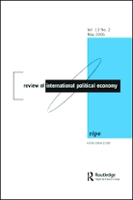Claims of global homogenization towards a singular model of finance capitalism constitute a “financialization convergence hypothesis” that has not been subject to systematic empirical scrutiny. Using extensive firm-level data we center on the key indicator of firm leverage, and reveal that substantial cross-national and cross-firm variation still persists. We first compare distributions across OECD countries and find no significant evidence of convergence over time. We then assess whether firms classified as prudent by a simple leverage threshold comprise a declining share of total financial assets over time. We find they do not, and that trajectories remain largely distinct. We do find empirical evidence of financialization convergence in two specific areas. First, there was convergence within the US and the UK in the years immediately proceeding the crisis – but not in other countries representative of stereotypical non-Anglo-American types financial systems, such as Germany and France. Second, we find convergence within the category of large, transnationally-active financial firms. Overall our results suggest that while the behavior of the world’s largest globally active financial institutions is converging irrespective of home domicile, their activities are not necessarily leading to the general global homogenization of financial forms and activities implied by the financialization convergence hypothesis.
An Empirical Investigation of the Financialization Convergence Hypothesis.
An Empirical Investigation of the Financialization Convergence Hypothesis.
- Sylvia Maxfield, William Kindred Winecoff, Kevin Young
- Publication Date
2017 - Website
- View Publication Information
 The College of Arts
The College of Arts